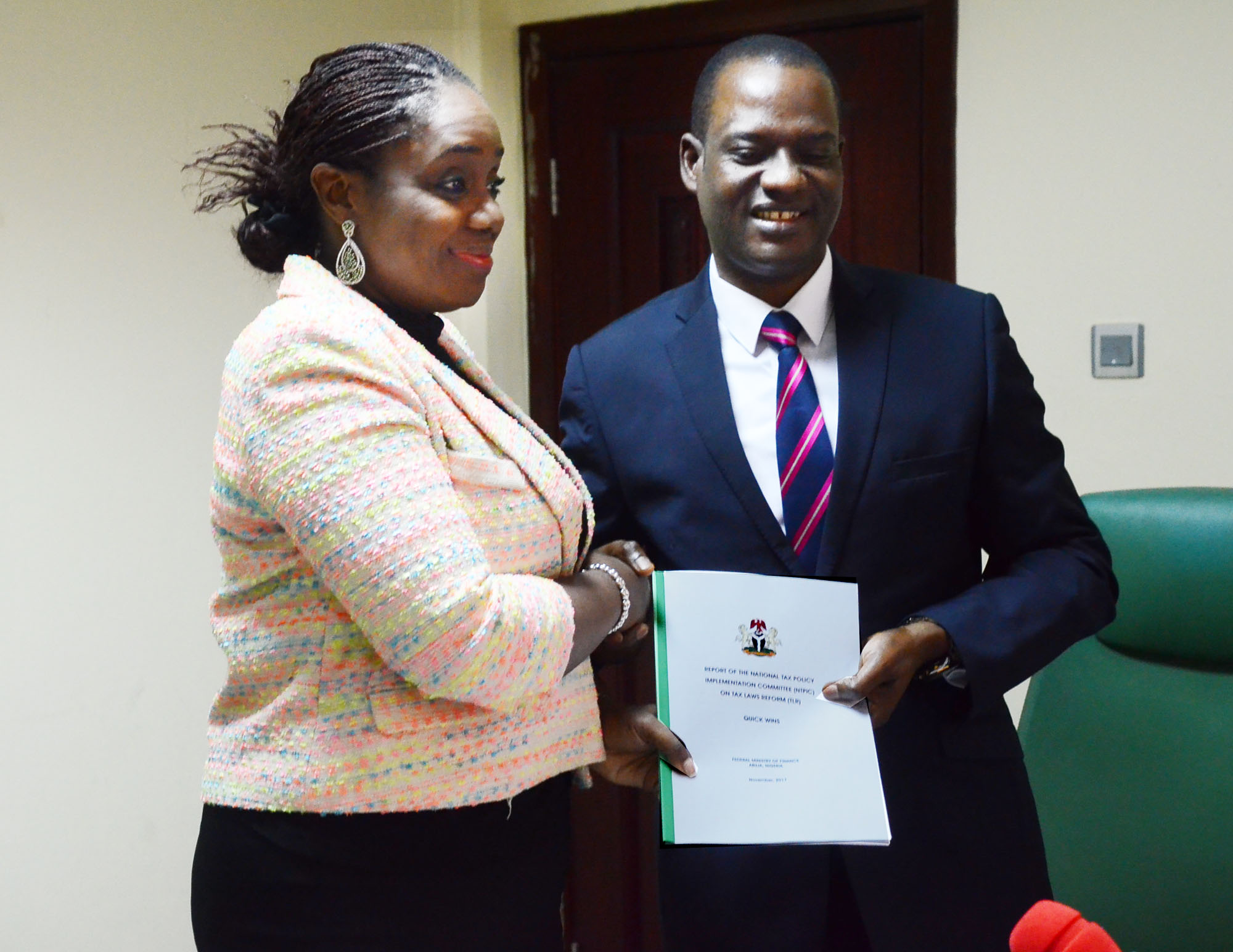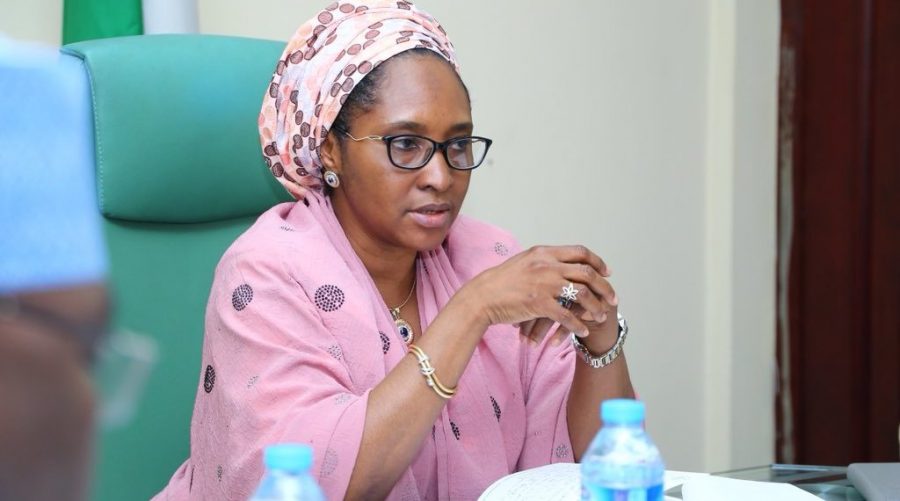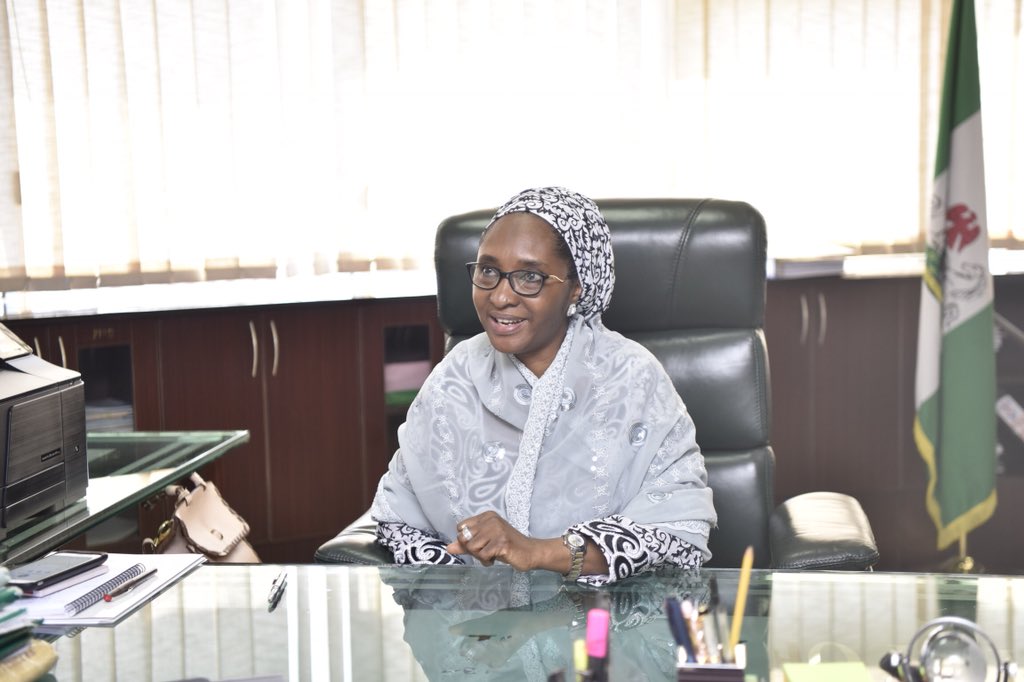- Seeks review of weak Finance Control Act
The Minister of Finance, Mrs. Kemi Adeosun, has challenged Treasury managers to ensure transparency and accountability in the management and control of the country’s public finance.
She gave the advice at the second National Treasury Workshop held in Tinapa, Cross River State.
The workshop was attended by Directors of Finance and Accounts in all Federal and State Governments’ Ministries, Departments and Agencies, Heads of Finance and Directors of Internal Audit and other stakeholders in national public finance management.

Vice-Chairman, National Tax Policy Implementation Committee (NTPIC), Mr Taiwo Oyedele (6th, R) and other committee members after submission of their report to Minister of Finance, Mrs Kemi Adeosun, in Abuja on Friday (2/2/18).
The Minister, who was represented by the Director of Special Projects in the Federal Ministry of Finance, Dr. Mohammed K. Dikwa, emphasized the need for a change in the mindset of Treasury managers in order to reform the basic polity.
She said, “The basic and fundamental approach to financial and economic reforms is to reform the basic polity. Reforms must be impacting and sustainable and should fit into the cultural ethos of Nigeria, among others.
“There is the need to evolve a culture which is value-based. It is expected that this workshop would draw from universal public values such as public trust, accountability, equity, transparency, ethical standard and selflessness.”
Adeosun called for a review of the Finance Control and Management Act of 1958, noting that the law was outdated and weak in instituting greater accountability and transparency in the conduct of government financial businesses
The Finance Control and Management Act provides detailed guidelines on control and management of the public finance of the country.
The Minister tasked the nation’s Treasury managers to critically examine the Finance Control and Management Act and other related financial issues with a view to addressing some of the inherent deficiencies in the provisions.
On the Economic Recovery and Growth Plan (ERGP), she explained that it was conceived by the President Muhammadu Buhari Administration towards laying a solid foundation for long-term economic growth.
She added that the emphasis of the ERGP was on local content business empowerment.
“The ERGP has been further designed to build competitive market, invest in infrastructure and human resources as well as harmonize monetary, trade and fiscal policies for the purposes of boosting non-oil revenue, reduction in cost of governance, privatization of selected public enterprises/assets, delivery on agriculture and transportation, among others,” the Minister stated.
Adeosun recalled that the Federal Government through the Federal Ministry of Finance had embarked upon a number of financial reforms with a review to strengthening governance, accountability, reduce corruption and deliver service more effectively.
She listed some of the initiatives introduced by the Government to include: full implementation of the Treasury Single Account (TSA), Presidential Initiative on Continuous Audit (PICA), Revenue Boosting Initiatives, Fiscal Sustainability Plan, Voluntary Assets and Income Declaration Scheme (VAIDS), Whistleblower Policy, Cash Management, Efficiency Unit, Healthpay Project, Family Homes Project, Asset Tracing Team, and Road Trust Fund, among others.
Earlier in his address at the workshop, the Accountant-General of the Federation, Alhaji Ahmed Idris, had urged public financial managers to come up with innovative ideas to address some of the challenges facing the Treasury and economy.
Idris said, “I will advise our public financial managers to see the current challenges facing the treasury and the economy as an opportunity to spur them to form a united front that will generate great ideas resulting in the provision of lasting solutions to the problems.”

 Health5 days ago
Health5 days ago
 Entertainment7 days ago
Entertainment7 days ago
 Crime5 days ago
Crime5 days ago
 Education7 days ago
Education7 days ago
 Health7 days ago
Health7 days ago
 Comments and Issues6 days ago
Comments and Issues6 days ago
 Football6 days ago
Football6 days ago
 Latest6 days ago
Latest6 days ago






